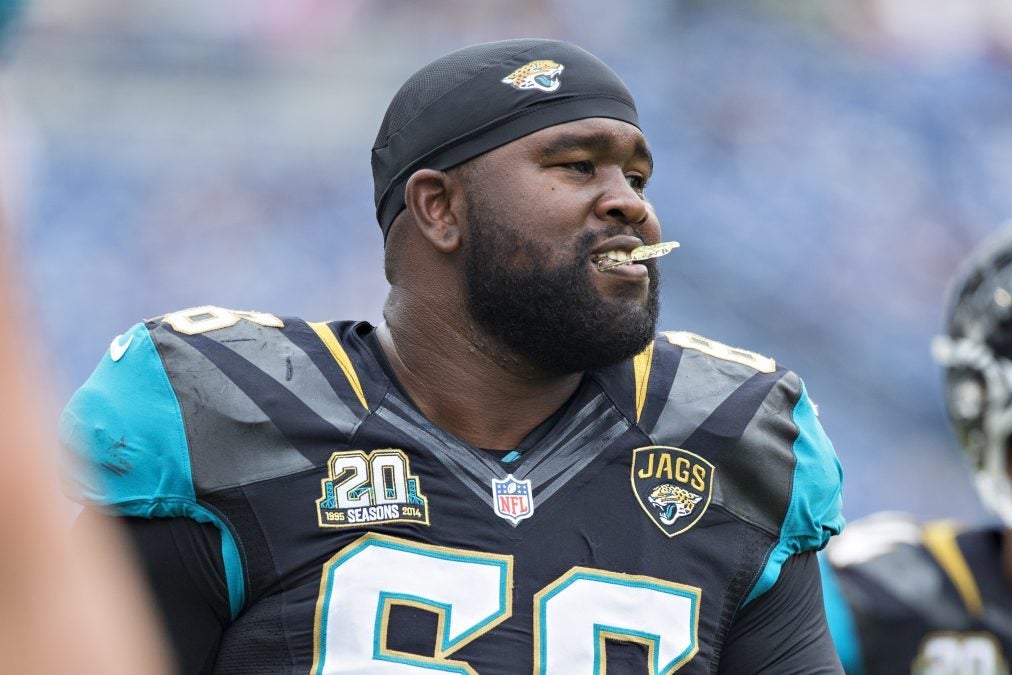Empowering athletes in the post-sport journey
Why this matters
Identity foreclosure during career transition is a difficult experience for athletes and military professionals alike.
The transition from athletics to civilian life is not always an easy one. In March, the Global Sport Institute at Arizona State University was scheduled to host a panel during the annual SXSW Festival in Austin, Texas. The panel continued virtually, entitled “Empowering Athletes in the Post-Sport Journey,” and featured speakers from diverse areas of sports discussing the transition from play to a second career.Panelists included:
Mori Taheripour, a globally-recognized executive and award-winning educator at the University of Pennsylvania with unique expertise in negotiation, diversity and inclusion, athlete education and development, high-impact philanthropy and sport for development.
Karen Gallagher, a senior postdoctoral research scholar at the Global Sport Institute. She serves as project manager on collaborative research efforts and works in developing programs and research projects related to athletes’ post-sport transition.
Jacques McClendon, the director of player engagement for the Los Angeles Rams. After spending seven seasons as an offensive lineman in the NFL, McClendon is responsible for assisting players with the transition from professional football and developing off the field.
Kenneth Shropshire, CEO of the Global Sport Institute. He is an author, educator and speaker consulting on athlete-transition and financial education and has worked with the NCAA, MLB, NFL, the United States Olympic Committee and others.
The panel discussed their transitions, McClendon from the NFL into his current role with the LA Rams, and Gallagher from the military into her role with the Global Sport Institute.
McClendon credits his high school for helping him realize what he could accomplish outside of football.
“I grew up in a single-parent household, just me and my mother,” he said. “She made about $25,000 a year. I had this opportunity to really propel myself and attend a very affluent high school. It cost $40,000 a year. I was able to get a scholarship. What this really showed me was the power of having a network.
“My best friend to this day is from that school. Just being able to interact with him and his family, and to see how his dad carried about his business, to see how the other side lived, coming from a place where we grew up on food stamps and other things of such.”
McClendon played college football at Tennessee. He graduated in three years with a bachelor's degree in economics and in the following year graduated with a masters in sports management before the Indianapolis Colts selected him in the fourth round of the 2010 NFL Draft.
That year, the final year of the old collective bargaining agreement before the 2011 lockout, allowed McClendon the time to explore what else he was planning to do in life besides football.
“Here I am, didn’t play much my rookie year, thinking ‘OK, what’s next?’” he said. “That’s a big transition year, year one to year two. I had to figure out something to A, stay busy and B, stay on top of my training.”
“I had the training part down, but the NFL had an externship available at the NCAA national office, so I took it and I was there for four months during the lockout. I worked from 8 (a.m.) to 4 (p.m.) and worked out from 4:30-6. That made me realize that sports administration was what I wanted to do. That exposure was key to me.”

Gallagher had a different path, enlisting in the Army out of high school, becoming a paratrooper and a chemical specialist.
“It was me seeking something bigger than myself,” Gallagher said. “When I got out of the Army, I had no room for my civilian self. There was this all-encompassing identity and tremendous sense of loss no one prepared me for.
“Every relationship outside of the military felt shallow, because we were not bonded by something bigger than ourselves.”
Gallagher said she wouldn’t speak to anyone for weeks, but finally found a turning point to guide her in the right direction.
“I connected with another veteran, who was a Vietnam veteran. He gave me a hand up and said ‘You can do this, we can’t let your generation fail,’” she said. “It was that moment for me that I started making room for my civilian self.
“From an adult developmental perspective, transition in itself is traumatic. If we are prepared for it, know what to do about it and know how to connect, we can succeed.”
In discussing the toughest transition in the post-sport journey, the panel arrived at a unanimous answer: the mental aspect.
Here is the result of our first poll! Do you agree/disagree? We're eager to know all your thoughts on this.#SXSW #GlobalSportMatters pic.twitter.com/ZNa2yrPcbN
— Global Sport Inst. (@GlobalSportASU) April 15, 2020
“I agree, I really think the mental aspect is the hardest to deal with,” McClendon said. “You look back to high school, the way these guys are built up in a recruiting standpoint. Everyone is trying to reach the pinnacle, the NFL, but no one talks about what’s next.
“Your passion and purpose is ‘Get to the league, get to the league.’ When it’s over, what is next? I think that if we can find a way to position this better, the best way I’ve heard this worded is, ‘It’s not a career, it’s an experience.’ The perfect time to (drill this in) is college, they have all these career centers and academics, all these resources to ask yourself what you want to do.”
Gallagher relates it to the military: “For military veterans, it should be part of training,” she said. “It’s one of the things we need to bridge better. Discharge begins at admission, if we don’t do this, it’s almost too late.”
For athletes, utilizing your platform and network is the best way to pave the way to your next career.
“People love sports because sports unite,” McClendon said. “So while you have that platform and opportunity, leverage it for your success, you have an unbelievable opportunity to leverage the now for the later.”
TJ Mathewson is a senior sports journalism student at Arizona State University.
Monthly Issue
COVID-19 & Sport
COVID-19 is the rival no one in sport could game plan for. As many live events remain at a standstill and the world keeps adapting, how is sport resetting upon its staggered returns?


